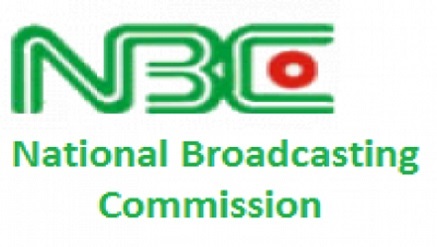Broadcasting
Digital Switchover: Why Nigeria Still Operates Analogue – NBC

National Broadcasting Commission (NBC) has apologised to Nigerians for its inability to switchover from analogue to Digital Terrestrial Television (DTT) on the June 17 international deadline.
This is contained in a statement signed by Alhaji Awwalu Salihu, commission’s director, Public Affairs, in Abuja.
June 17 was an international deadline set for switching over to digital terrestrial television. The statement however assured Nigerians that disappointing as it might be, it was not without a fairly good shot at success.
According to the commission, it has been working actively since 2006 to put all the building blocks of the transition in place.
“The journey would have been completed if funding had been available. “It is important however to state that the journey toward Digital Terrestrial Television has already started.
“At the moment, Nigeria has reached about 20 per cent penetration of the 26 million TV Households (TVHH) in the country,” it said.
The statement said that the commission had worked with DigiTeam Nigeria, to harmonise the minimum standards for Set-top-boxes and the transmission standards for all member states of the ECOWAS.
“It is noteworthy that the main penalty that Nigeria will face consequently is that analogue signals will receive no protection in the event of interference from digital signals from our neighbours.
” We have also completed the frequency re-planning, successfully done the coordination with our neighbours and have selected a second signal distributor,” the statement said.
It further said that it had licensed a free view signals aggregator and had also selected 11 successful companies to manufacture set-top boxes in Nigeria. “The commission had also put in place an EPG/STB control system to protect the investment of the local Set-top-box manufacturers.
” Our goal is to enable the evolution of a digital television ecosystem that not only transforms television and broadcasting in general. ” But also able to help bridge the digital divide, create jobs and grow our national economy,” it said. The statement further assured Nigerians that it would only switch off analogue signals when majority of Nigerians could receive digital signals.
The commission promised to conclude the final stages of the switchover within 18 months as soon as funds were available.
These final stages include: the acquisition and local production of the Set-top-boxes, relocation of MMDS operators, buy-back of obsolete analogue transmitters and massive publicity.
The commission thanked stakeholders for their cooperation in the “arduous” journey, and appealed to Nigerians for their understanding. It also promised to do everything within its power to successfully take Nigerian broadcasting onto the digital ecosystem.
Broadcasting
How to Turbo-charge Your Productivity as a Backend Engineer!

By Seye Folajimi
I start each day with one goal: to be as efficient and focused as possible. A developer’s life is full of interruptions, and without good time management, it’s easy to fall behind. As a Backend Engineer at Moniepoint, I’ve assembled the toolkit that helps me and I believe by extension any technical professional to deliver results consistently.

In this feature article, I’ll share the tools and habits that have practically multiplied my productivity and sharpened my focus on the job.
My Daily Toolbox
I rely on a handful of core tools every day. IntelliJ IDEA and Visual Studio Code are my primary editors: IntelliJ for heavy backend work (it’s packed with features) and VS Code for quick edits or scripting. When testing APIs or debugging endpoints, Postman is indispensable for sending requests and saving environments. For spotting code or configuration differences, I often paste text into Diffchecker.com and let it highlight the changes. And for database work, MySQL Workbench provides a visual SQL editor and schema designer that saves me a ton of time. Dear professional, using the right tool for each task means fewer context switches and a smoother workflow.
Productivity Strategies That Power My Workflow
Beyond raw tools, I use structured habits to stay on track. I break the day into focused blocks and assign each chunk to an activity (coding, reviews, meetings, etc.). This time-blocking approach improves focus by letting me give my full attention to one task at a time. I also apply the Eisenhower Matrix to categorize tasks by urgency and importance; this ensures I tackle critical work first. Rather than flitting between emails, calls, and code, I batch similar tasks into dedicated slots. Some of my core techniques include:
Time Blocking: I assign specific blocks of time for coding, meetings, code reviews, and so on. This means I can dive deep into one task without switching contexts. (For example, I often use 25-minute sprints followed by a 5-minute break – the classic Pomodoro cycle – to keep my mind sharp.)
Prioritization (Eisenhower Matrix): Each morning I list my tasks and sort them by urgency vs importance. The Matrix helps me “do first” what truly matters and “delegate or drop” low-value items. This clarity prevents me from getting bogged down by busywork.
Automation: Whenever I catch myself doing something repetitive, I stop and ask, “Can I script this?” Whether it’s a shell script for routine commands or a CI/CD pipeline for deployment, automation frees up hours. Reducing manual repetition lets me focus on more critical work. Even simple automations (backups, report generation, test harnesses) add up to big time savings.
Notification Discipline: I turn off unnecessary notifications and check email/Slack only at scheduled times. By minimizing interruptions, I stay “in the zone” longer and preserve my cognitive energy.
Building My Custom Focus Extension: The Hot Gate
I even took matters into my own hands by coding a productivity tool from scratch, i called it “THE HOT GATE” .
The “Hot Gate” refers to the ancient Battle of Thermopylae in 480 BCE, a famous event in Greek history. It’s where King Leonidas of Sparta and a small force of Greeks (famously 300 Spartans) held off the vast Persian army of Xerxes I for several days.
The extension:
Blocks distracting websites during deep work sessions.
Organizes tabs to reduce clutter.
Unlocks distractions only during breaks.
I built it using JavaScript and browser APIs. One limitation: I can still turn it off manually. I’m considering adding a restriction to prevent that—but it’s still a local extension. Maybe someday I’ll publish it.
Breaks and Rewards
I’ve learned that smart breaks actually boost productivity. I take 2–4 minute strolls every hour, prompted by reminders from our infrastructure team. It’s refreshing and clears my head.
After big wins (like deploying a major feature or solving a tough bug), I reward myself—whether it’s a nice meal, a movie night, or just a chat with friends. These rewards keep me motivated and prevent burnout.
Wrapping Up
In my experience, combining the right tools with disciplined habits is what unlocks consistent high performance.
I’m constantly refining my setup—automating repetitive tasks, organizing my schedule better, and building systems that help me stay in the zone.
At Moniepoint and beyond, delivering quickly and reliably takes more than just code. It takes systems thinking, self-awareness, and the discipline to evolve your workflow over time.
By adopting these practices, I’ve become both more productive and more fulfilled. And I’m hoping the story is same or at least similar for you after reading this.
Seye Folajimi is a backend engineer with Africa’s fastest growing financial institution, Moniepoint Inc.
Broadcasting
African Craftsmanship Takes Center Stage at TALES 2025 in London

This summer, London’s West End will transform into a vibrant showcase of African excellence as TALES (The African Lifestyle Experience) returns with its most ambitious edition yet: Reimagine 2025.

A Luxury Cultural Experience
Hosted at Luxury Promise, 28 Cavendish Square, just off Oxford Street, the event will run from July 25 to August 3, 2025, offering ten days of curated experiences, fashion-forward storytelling, and cultural immersion.
With over 70 curated brands spanning fashion, beauty, art, music, and home décor, TALES 2025 will spotlight Africa’s brightest creative talents and celebrate craftsmanship across the diaspora.
Key Highlights
- Exclusive African Fashion & Craftsmanship Discover one-of-a-kind pieces, from bold fashion in traditional textiles like Aso Oke, Adinkra, and Bantu, to luxury handmade beauty products and bespoke interiors.
- Fireside Chats with Industry Icons Intimate conversations with trailblazers and tastemakers exploring the future of African entrepreneurship, culture, and design.
- Kidpreneur x The Veteran A standout feature returns, bridging generations of innovation by spotlighting rising Gen Z entrepreneurs alongside industry legends like Gloria Ije Anyaehie-Coker, founder of GIA1 Fashion.
- Exclusive Travel Offer with Air Peace TALES is partnering with Air Peace to offer a 15% flight base fare discount for brands and attendees flying to London, strengthening connections within the diaspora.
A Global Movement Powered by Bellafricana
Backed by Bellafricana, a platform empowering African creative entrepreneurs across 18+ countries, TALES champions authentic African stories, craftsmanship, and visibility on the world stage.
Supported by the City of Westminster
The City of Westminster proudly supports TALES 2025, reinforcing London’s commitment to diversity, innovation, and inclusive cultural celebration. The event will be featured across Oxford Street’s Instagram and website, ensuring maximum visibility.
Why It Matters
Following the runaway success of TALES 2024, which featured 40 brands and attracted a global audience, Reimagine 2025 raises the bar. As London’s fashion and cultural scene increasingly embraces diversity and authenticity, TALES 2025 is a timely and necessary celebration of African brilliance.
Whether you’re a fashion enthusiast, culture lover, or global tastemaker, TALES 2025 is where Africa’s future-forward creativity meets London’s cultural heartbeat.
Event Details
Venue: Luxury Promise, The Corner Showroom, 28 Cavendish Square, London W1G 0DB 

Broadcasting
Bolt Rewards Loyalty and Expands Branding at Lagos Family Fest

Bolt, Africa’s leading ride-hailing platform, hosted its Bolt Family Fest in Lagos to honour driver loyalty, reward top performers, and strengthen community ties within its driver network.

As Bolt’s largest market in Nigeria, Lagos served as the ideal location for this vibrant celebration of excellence and shared growth.
The event recognised and rewarded some of Bolt’s longest-serving and still-active drivers, who have been with the platform for 7 to 8 years since the early days when Bolt was known as Taxify.
These veteran drivers were specially recognized and rewarded, each receiving a cash award of ₦200,000 in appreciation of their commitment to the platform and consistent service delivery.
In addition to honouring loyalty, the Bolt Family Fest provided a platform to scale up vehicle branding efforts in the city.
The on-site branding process was made easy and accessible for drivers, while attractive incentives including branded merchandise, gift bags, and raffle entries encouraged participation.
A key highlight of the day was a lucky dip giveaway, where two lucky drivers, one newly branded and one previously branded each walked away with a brand-new SmartTV.
Osi Oguah, General Manager, Bolt Nigeria said: “Our drivers are the heart of everything we do at Bolt, and this event is our way of saying thank you for their dedication and professionalism. We’re not just building a platform, we’re building a family.
“The Bolt Family Fest is about creating moments of connection and showing our drivers they are seen, appreciated, and celebrated.”
The event delivered multiple wins for Bolt including increased the number of branded vehicles in Lagos, enhanced Bolt’s street-level visibility across the city and strengthened the sense of unity and pride within the driver community.

 Telecom3 days ago
Telecom3 days agoALTON Clarifies on Migration to End-User Billing for USSD Services

 E-Financial3 days ago
E-Financial3 days agoNigerian Stock Market Suffers ₦183 Billion Loss Amid Profit-Taking

 News3 days ago
News3 days agoDStv Rewards Loyal Customers with Free Package Upgrades

 Telecom3 days ago
Telecom3 days agoLagos Future Conference 2025: Stakeholders Call for Digital Responsibility and Grassroots Innovation

 News2 days ago
News2 days agoLasaco Assurance to Invest in Technologies, Systems to Deliver Value to Clients

 General News3 days ago
General News3 days agoAfrican Parliamentarians Seek Answers from Telcos on Quality of Service

 E-Financial3 days ago
E-Financial3 days agoSEC Working on Stablecoin Regulation Framework

 News3 days ago
News3 days agoFCCPC Orders Air Peace to Appear Over Alleged Refund Violations


























